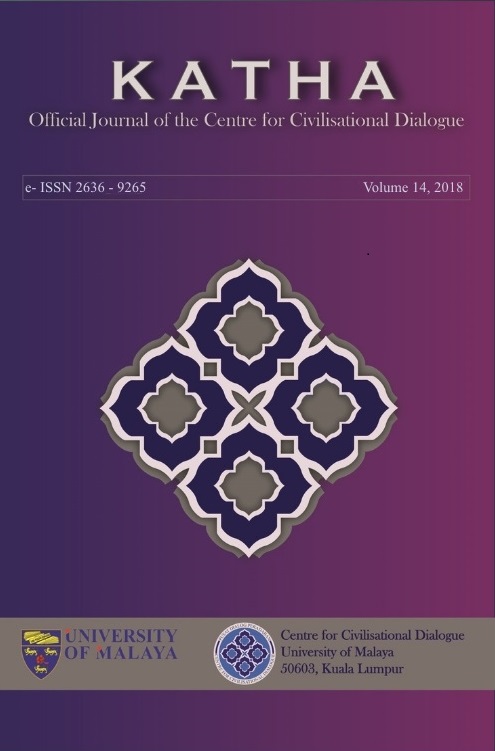Theory of Ibn ʿArabī in the Cosmic Symptoms
DOI:
https://doi.org/10.22452/KATHA.vol14no1.2Abstract
Ibn ʿArabī believes that the cosmic symptoms or fact of the facts is one of the manifestations of the mediator between the divine and the world. Its mediation means that it represents the contents of old divine knowledge. The science is a fact in the psychology related to the nonexistent and existent. The fact of the facts or the total truth is the sum of the facts that constitute the divine science. The science belongs to both: The nonexistent and existent. Ibn ʿArabī is in the favor of idealistic philosophy of Plato: “Everything has created on the image of its essence, the essences of things are prior to their existence”, i.e., it was in the divine knowledge when it was in the nothingness. Thus Ibn ʿArabī avoids the presence of any existent had its real existence before being in the divine knowledge. The total fact of the facts cannot be labeled by “the possible”, as it is understood that the total fact of the facts do not accept the real existence, which can be acceptable to the possible, although it is possible for the total fact to appear in the features of real existence as it is in the reality.
Downloads
Downloads
Published
How to Cite
Issue
Section
License
Articles submitted to the journal should not have been published before in their current or substantially similar form, or be under consideration for publication elsewhere. Authors submitting articles for publication warrant that the work is not an infringement of any existing copyright and will indemnify the publisher against any breach of such warranty. For ease of dissemination and to ensure proper policing of use, papers and contributions become the legal copyright of the publisher unless otherwise agreed. By submitting a manuscript, the author(s) agree that copyright for the article is transferred to the publisher, if and when the manuscript is accepted for publication. However, it can be reprinted with a proper acknowledgment that it was published in KATHA.

This work is licensed under a Creative Commons Attribution-NonCommercial-NoDerivatives 4.0 International License.




